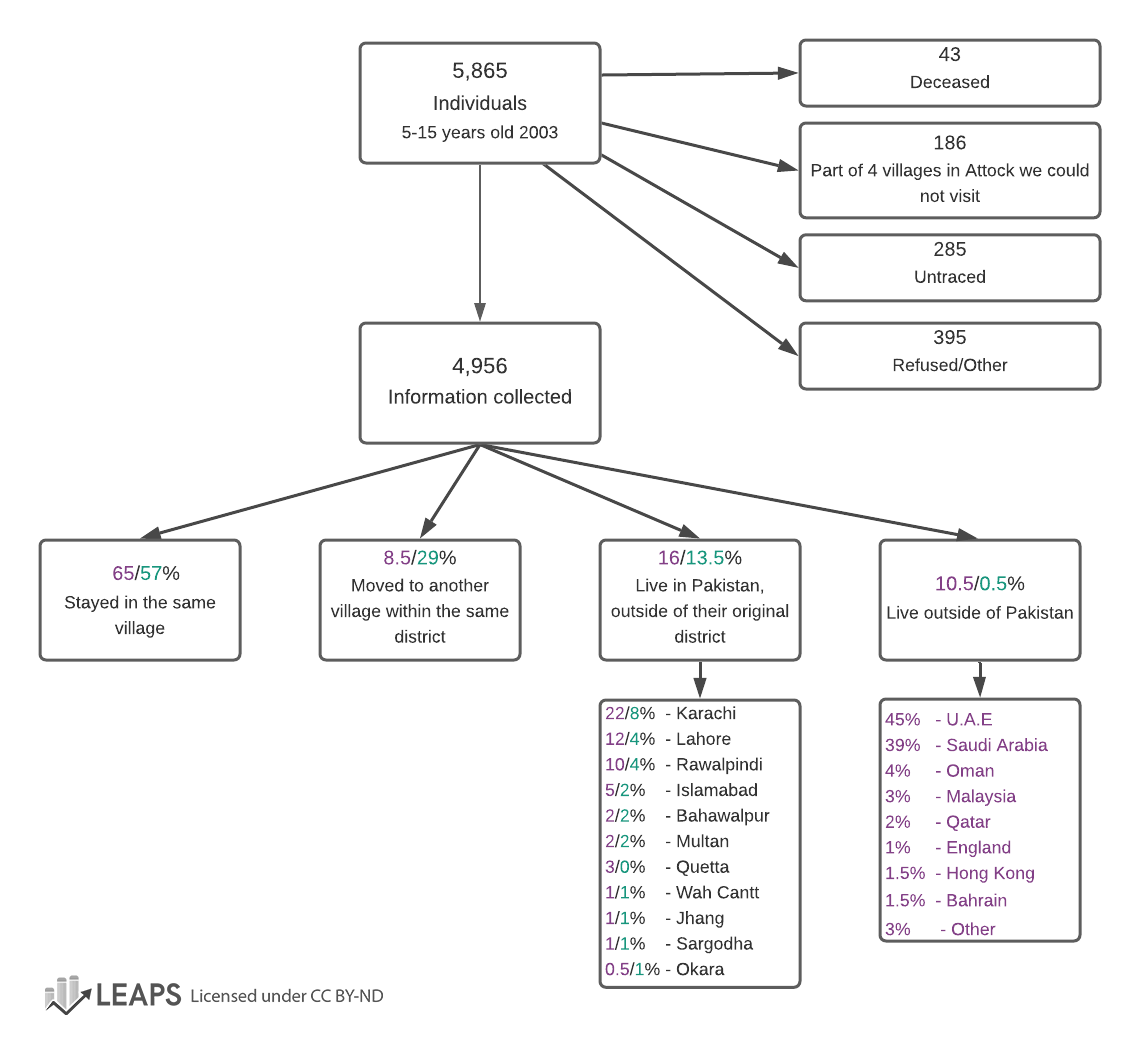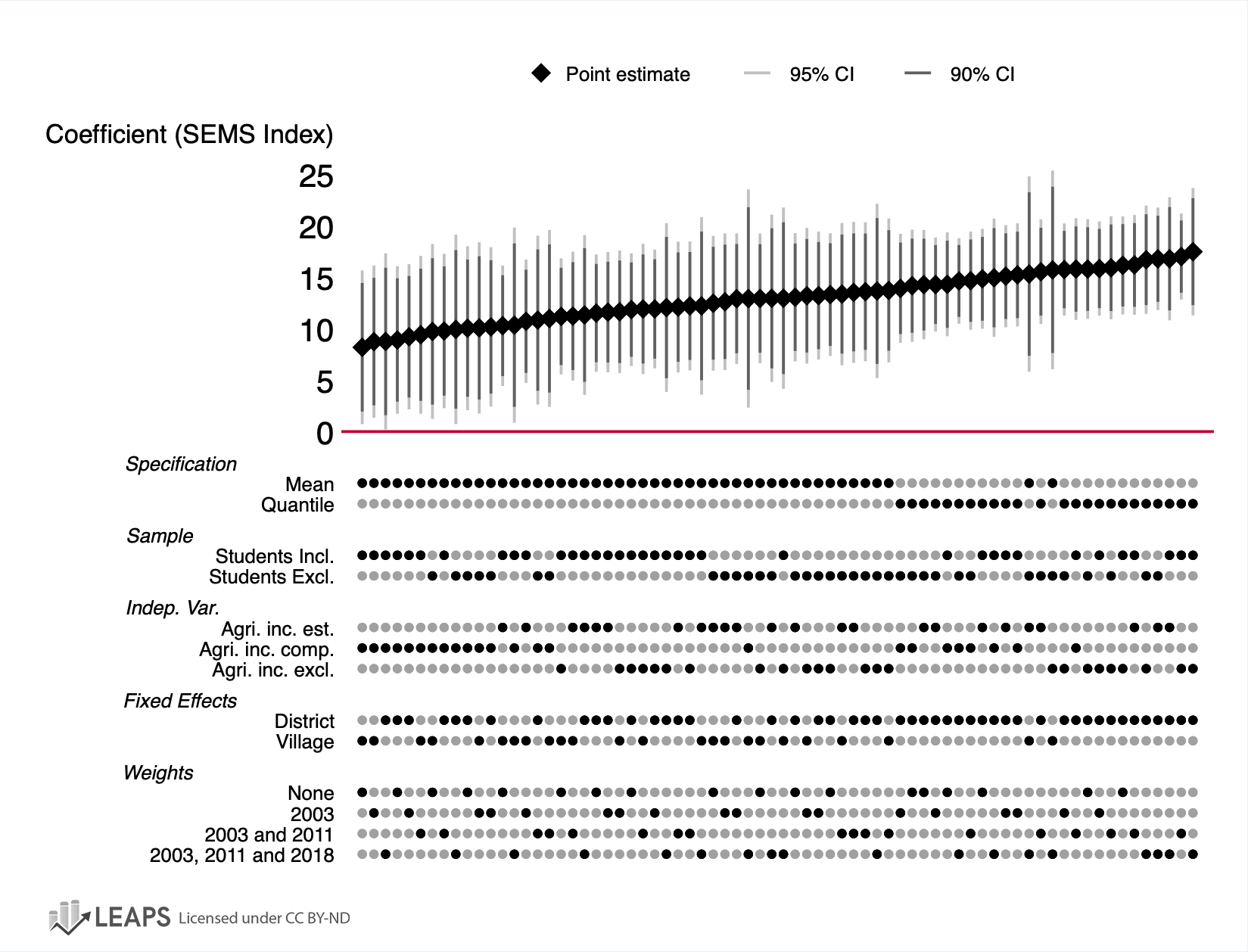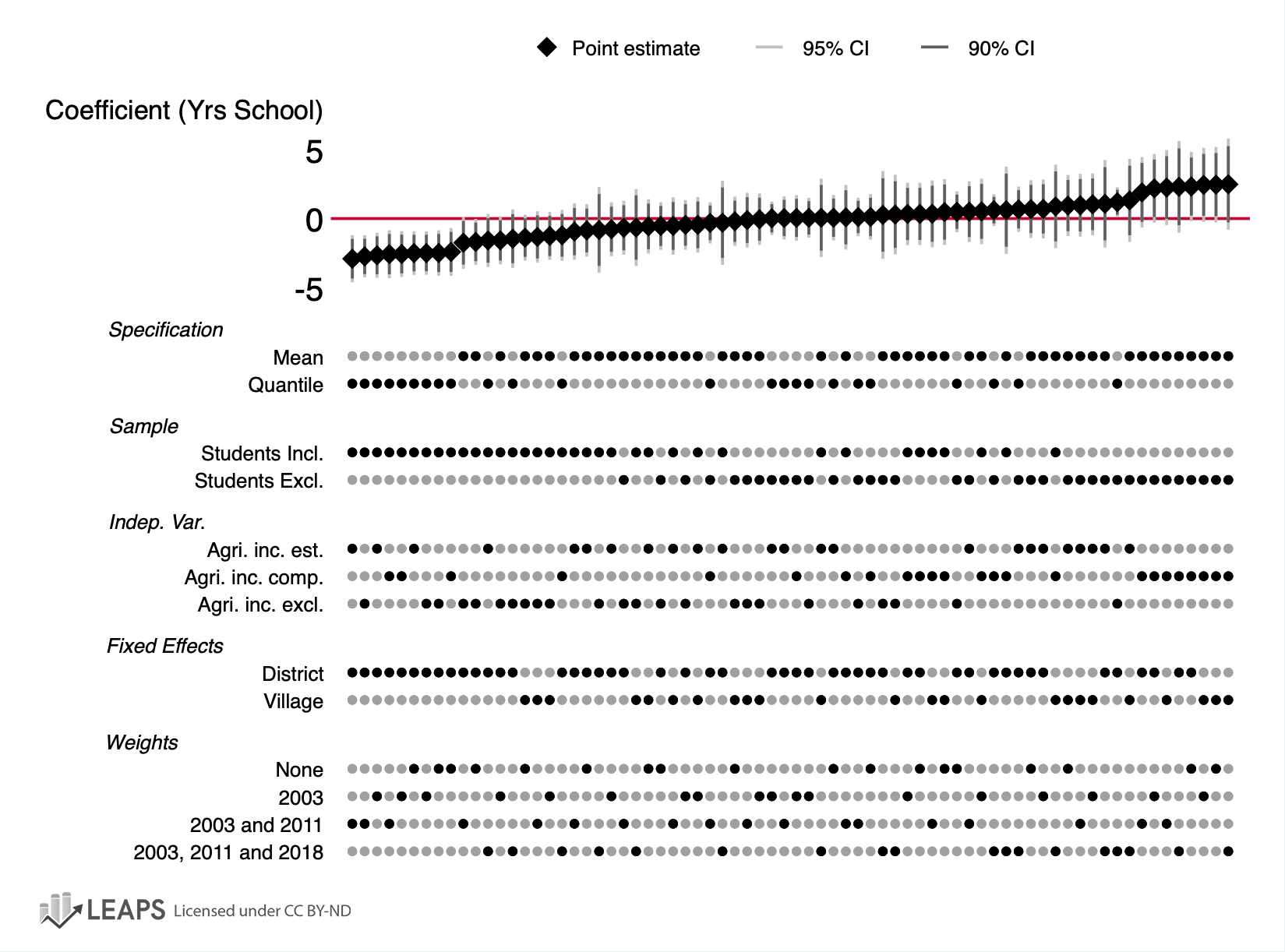Cognitive and Socio-Emotional Skills in Low-Income Countries: Construct and Predictive Validity
Summary: We assess the construct and predictive validity of cognitive and socio-emotional skills in Pakistan using two innovations in measurement and sampling. First, we developed and implemented a battery of tests to capture cognitive and socio-emotional skills among young adults. We measured socio-emotional skills using both self-reported and task-based instruments and psychometrically verified the validity of the different components. For cognitive skills, we measured standard literacy and numeracy as well as skills useful for everyday life. We demonstrate the reliability and construct validity of these measures compared to previous attempts in the literature. Second, we constructed a panel that follows respondents from their original rural locations in 2003 to their locations in 2018, a period over which 38% of respondents left their native villages. We show that the predictive validity of our skills measures is mediated by the migration decision. Among male migrants, labor earnings are strongly correlated with years of schooling, but not socio-emotional skills. Among male non-migrants, wages are associated with socio-emotional skills, but not years of schooling. These associations are consistent with similar data from rural Cambodia, a region with similar levels of schooling but different patterns of migration and labor force participation.
Citation: Danon, Alice, Jishnu Das, Andreas de Barros, and Deon Filmer. 2022. “Cognitive and Socio-Emotional Skills in Low-Income Countries: Construct and Predictive Validity“. RISE Working Paper Series. 23/126.
Alice Danon
Jishnu Das
Deon Filmer
Andreas de Barros
Study Design and Findings
Two strategies widely believed to improve living standards for populations living in rural areas are education and migration. In this paper, we study the links between education, skills formation and labor market outcomes in low-income settings. Our sample allows us to also analyze how these patterns very with migration. Motivated by research that demonstrates (a) the importance of socio-emotional skills in the United States (Heckman 2007) and (b) the difficulty of measuring these skills in low-income countries (Macours and Lajaaj, 2021), we focus on the measurement of both cognitive and socio-emotional skills, and how they relate to labor market outcomes of young adults.
To allow for potential links between migration and skills, we study an unusual sample of children who grew up in rural Pakistani villages and were first surveyed in 2003 when they were between the ages of 5 and 15 and then re-surveyed between 2017 and 2018, regardless of where they were living at that point in time. At this point, 38% had migrated from their native homes so that migration appears as an endogenous response to the skills that respondents have acquired, and, in turn, may lead to differential returns to these skills.
Our measures of cognitive and SEM skills are reliable and valid in construct
Our measures of socio-economic skills (SEMS) satisfy several desirable properties, including a high Cronbach’s alpha-statistic. We recognize that there remains room for improvement along some domains, including test-retest reliability and acquiesce bias. In our sample, we find as expected, that there is a robust correlation between years of schooling and cognitive skills with every year of schooling associated with a 0.17sd increase in the tested subjects of English, Mathematics, and Urdu in Pakistan, and very similar results in Cambodia; with considerable variation in test scores within each grade level. We find that for SEMS, mean skill levels are similar to those in rich-country populations, which suggests that at the population level our measures are not indicative of substantial deficits.
Cognitive and SEM skills do not appear to determine labor force participation for men or women
In our Pakistan sample, labor force participation among men is 79%, compared to 6% for women, consistent with the literature on very low female labor force participation rates in South Asia. Labor force participation increases with years of schooling for women but declines for men, however, conditioning on years of schooling, neither cognitive nor socio-emotional skills are correlated with labor force participation for either gender. In our sample, each year of education is associated with 3.2-3.6% higher labor earnings for men and a much higher 22-22.5% for women, which partly reflects higher labor-force participation rates among these women.
Earnings are strongly correlated with years of schooling for men who migrate; but correlated with SEMS for those who do not
We show that both cognitive skills and SEMS are highly predictive of labor earnings for men, conditional on years of schooling. However, there is substantial heterogeneity by migration status: Among the men still in their native villages, we find a precisely estimated zero returns to years of schooling and a strong correlation between SEMS and labor earnings. By contrast, among men who migrate out of their home village, the most robust result is a significant correlation between labor earnings and years of schooling. We use a second dataset from Cambodia to confirm these results, once again finding that the correlation of earnings with years of schooling is close to zero and although the results are more imprecise, the association with SEMS is positive for men who remain in their native villages.
Our results show large returns to socio-emotional skills on the labor markets in rural Pakistan. At the same time, parallel research by Barrera-Osorio, De Barros and Filmer (2018) leverages an experimental design to show that there is zero causal impact of years of schooling on socio-emotional skills in Cambodia. These patterns open up a discussion on the role of schooling, and in particular whether socio-emotional skills should be taught in schools.
Study Resources
The following resources are for public use in presentations, papers, lectures, and more under the Creative Commons license BY-ND. Click the images below to view or download individual images, or use the button to download all.
As a condition of use, please cite as: Danon, Alice, Jishnu Das, Andreas de Barros, and Deon Filmer. 2022. “Cognitive and Socio-Emotional Skills in Low-Income Countries: Construct and Predictive Validity“. Working Paper.












